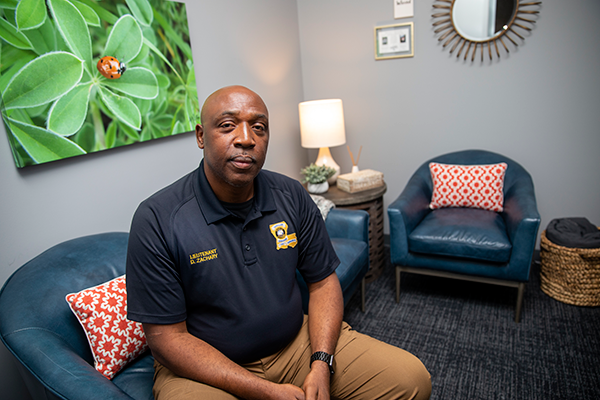Molly Jane Matheson, a 22-year-old college student in Fort Worth, Texas, wanted to become a social worker so she could help troubled youth.
She was enrolled at a community college, and was mulling over options for transferring to a larger school.
That will never happen.
On April 10, 2017, her mother, Tracy Matheson, discovered “the worst nightmare a parent could possibly ever dream up” inside Molly Jane’s apartment. She found her daughter’s body. The next day, Matheson learned that Molly Jane’s death was ruled a homicide and that her daughter had been raped.
On the one-year anniversary of her daughter’s murder, Matheson established Project Beloved: The Molly Jane Mission. Through the nonprofit, she serves as an advocate for survivors of sexual abuse and domestic violence.
Matheson worked with Texas legislators to help establish Molly Jane’s law, for example. It will mandate that law enforcement agencies in Texas enter information about suspects into a national database that helps them identify serial offenders and track similarities in sexual assaults. The law will go into effect Sept. 1.
Project Beloved also has given Matheson a way to help victims “find their voices.” With the help of two interior designer friends who volunteer for Project Beloved, Matheson furnishes “soft” interview rooms in police stations.
The University of Louisiana at Lafayette is the first university in the nation to partner with Project Beloved to give sexual assault and domestic violence victims a special area where they can talk with investigators. It’s a small interview room inside the recently-renovated police station in Bittle Hall.
The cozy space is bathed in muted lighting, holds three blue leather chairs draped with blankets, and has paintings of nature scenes on its walls.
Aesthetics aren’t the impetus for the décor. Matheson said “soft” interview rooms – as opposed to stark, institutional rooms – are designed to soothe traumatized crime victims. The rooms assist law enforcement investigations, she added.
“It’s a tool for police to investigate sexual assaults. I believe with every fiber of my being that soft interview rooms yield better results. There is going to be a different dynamic between law enforcement and victims,” she said.
Victims in comforting environments are better able to recall details and relay accounts of what happened to them during police interviews, according to Matheson.
Lt. Darren Zachary, a ULPD investigator, agrees. “It takes courage for sexual assault survivors to come forth and tell their stories. A person who has been traumatized is dealing with a lot of emotions. A person who has been assaulted will open up more in an environment that is more inviting than a standard interview room.
“I think this room has the potential to help so many survivors. Hopefully, we never have to use it, but realistically we know we probably will have to. And we’ll be able to share it with other law enforcement agencies, too, because we all work together,” he said.
In April, Zachary began researching soft interview rooms after attending conferences that focused on sexual assault and violence against women. He found Project Beloved’s website, and contacted Matheson. She readily agreed to make ULPD the second law enforcement agency she has assisted through Project Beloved. Matheson recently helped install a soft interview room at the Angleton County Sheriff’s Department in Lufkin, Texas.
Last week, Matheson traveled from Fort Worth – transporting furniture and accessories Project Beloved donated to ULPD – to help officers furnish the room.
“It’s been good for me to have something to really take my grief and channel it in this direction. I still miss her every moment of every day, and I’d do anything for five more minutes with her. But that isn’t going to happen.
“The only thing I can do now is make sure that her legacy lives on and that her death brings change.”
Learn more about Project Beloved.
Photo: Lt. Darren Zachary partnered with Fort Worth-based Project Beloved to set up a “soft” interview room for victims of sexual assault and violence in the University of Louisiana at Lafayette Police Department’s recently renovated station in Bittle Hall. Rachel Rafati / University of Louisiana at Lafayette
